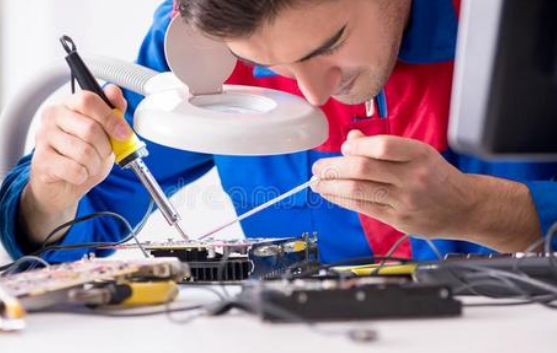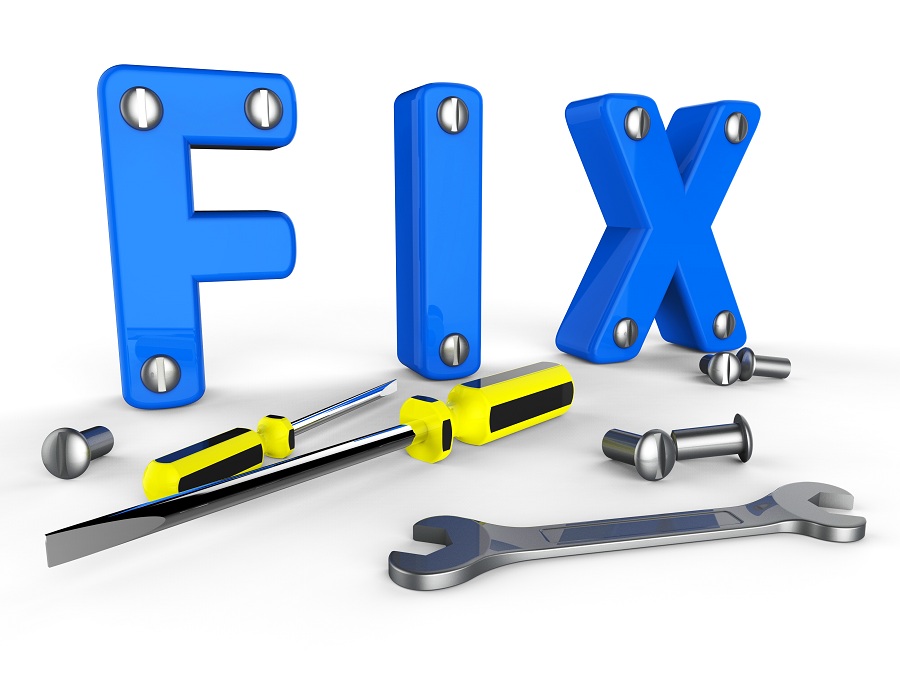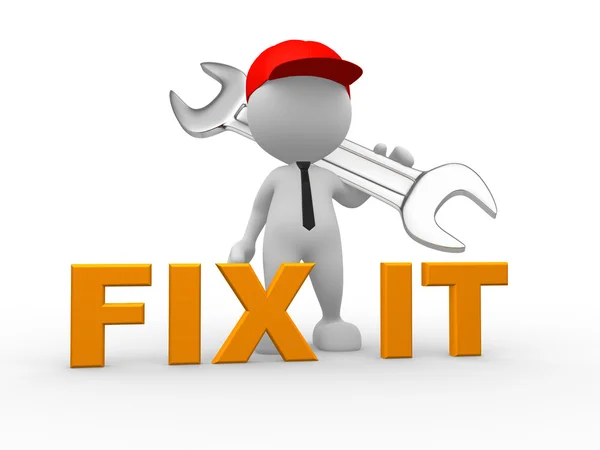Is your computer feeling a bit sluggish, perhaps moving at a snail's pace when you really need it to be quick? It's a common issue, honestly, and one that can make daily tasks feel like a real chore. When a computer starts to lag, it simply means it's not responding as quickly as it should, making everything from opening programs to browsing the internet a frustrating experience. You might notice delays, programs freezing up, or even your mouse cursor hesitating. This kind of slowdown can be really annoying, especially when you are trying to get things done or just relax with some entertainment.
Many people find themselves wondering what happened to their once speedy machine. Over time, computers can gather digital clutter, run too many things at once, or just need a little bit of care. The good news is that often, getting your computer to work better does not require a brand new machine. There are many things you can do to bring back that quick, smooth feeling. It's almost like giving your computer a fresh start, so it can perform its best for you.
This guide will show you some easy, practical steps you can take right now to make your computer feel faster. We will talk about common reasons for a slow computer and, very importantly, how to deal with them. The goal is to help you understand what might be causing the slowdown and, in a way, give you the tools to make things right. After all, the meaning of 'fix' is to make firm, stable, or stationary, or to adjust and repair something, and that is exactly what we aim to do for your computer's performance.
Table of Contents
- Understanding Computer Lag
- Quick Fixes for Immediate Relief
- Deep Cleaning and Optimization
- System Settings Tweaks
- Hardware Considerations
- Frequently Asked Questions
- Getting Your Computer Back on Track
Understanding Computer Lag
Lag, in simple terms, is when your computer takes too long to respond. It is that frustrating pause between when you click something and when it actually happens on screen. This delay can happen for a lot of reasons, and knowing what they are is the first step to making things better. Often, it feels like your computer is just tired, or perhaps it has too much on its plate.
What Causes a Computer to Slow Down?
There are many things that can cause a computer to slow down, actually. One big reason is having too many programs open at once. Each program uses up a piece of your computer's memory and processing power. When you have too many, they all compete for these resources, and things get slow. It is like trying to have too many conversations at once; no one gets heard clearly.
Another common cause is a hard drive that is too full or very disorganized. Think of your hard drive as a filing cabinet. If it is packed to the brim with papers shoved in everywhere, finding what you need takes a lot longer. Similarly, a cluttered hard drive makes your computer work harder to find files, leading to delays. This is especially true if you have a traditional spinning hard drive.
Sometimes, unwanted software, like viruses or other harmful programs, can run in the background without you knowing. These programs can eat up your computer's resources, causing it to slow down significantly. They are like uninvited guests who just sit around and consume all the snacks. Also, outdated software or drivers can sometimes cause issues. Programs and parts of your computer need regular updates to work their best with each other, so it is important to keep them current.
Quick Fixes for Immediate Relief
When your computer is lagging right now, there are a few simple things you can try that often make a difference right away. These steps are easy to do and can help clear up minor slowdowns. It is almost like giving your computer a quick refresh, you know, just to get things moving again.
Restart Your Computer
This might sound too simple, but restarting your computer is surprisingly effective. When you restart, your computer clears out its temporary memory, stops all running processes, and basically starts fresh. This can often resolve minor software glitches or memory leaks that are causing lag. It is like taking a short nap for your computer, allowing it to wake up feeling much better. So, if things feel slow, just try turning it off and on again.
Close Unnecessary Programs
Take a look at your taskbar or dock. Are there many programs open that you are not currently using? Each open program uses up some of your computer's memory and processing power. Closing programs you do not need right now can free up these resources, allowing your computer to focus on what you are actually doing. This is a pretty straightforward way to reduce the load on your system. You can also check your Task Manager (on Windows) or Activity Monitor (on Mac) to see what is running in the background and close anything that is not needed.
Check Your Internet Connection
Sometimes, what seems like computer lag is actually a slow internet connection. If web pages are loading slowly or online videos are buffering, the issue might not be your computer itself. Try restarting your router or modem. You can also run a quick internet speed test to see if your connection is performing as it should. A weak Wi-Fi signal or a problem with your internet service provider can definitely make things feel sluggish, even if your computer is running perfectly fine otherwise.
Deep Cleaning and Optimization
Once you have tried the quick fixes, it is time to do some deeper cleaning and optimization. These steps are about making more permanent improvements to how your computer performs. They help get rid of digital clutter and adjust settings for better speed. This is where you really start to make things stable and firm, you know, for long-term smooth operation.
Clean Up Your Hard Drive
A full hard drive can really slow down your computer. It is like trying to run through a room full of stuff; you just cannot move as fast. You should delete old files you no longer need, uninstall programs you do not use anymore, and empty your Recycle Bin or Trash. Windows has a built-in tool called Disk Cleanup that can help with this, removing temporary files, system logs, and other unnecessary items. On a Mac, you can use the "Optimize Storage" feature. Clearing space gives your computer more room to work and helps it find files more quickly, apparently.
Manage Startup Programs
Many programs are set to start automatically when you turn on your computer. While some are necessary, others just add to the time it takes for your computer to boot up and can run in the background, using resources without you knowing. You can manage these programs through your computer's settings. In Windows, open Task Manager and go to the "Startup" tab. On a Mac, go to System Settings, then "General," and look for "Login Items." Disable any programs you do not need to launch immediately when your computer starts. This can significantly reduce boot time and overall lag, you know, right from the moment you power on.
Update Your Software and Drivers
Keeping your operating system, programs, and device drivers up to date is pretty important. Updates often include performance improvements, bug fixes, and security patches that can make your computer run more smoothly. Outdated drivers, especially for graphics cards, can cause performance issues and even crashes. Make sure your Windows or macOS is set to update automatically, and check for driver updates regularly, too. Sometimes, a simple update is all it takes to make things work better. You can learn more about computer maintenance on our site, which often includes updating components.
Scan for Malware and Viruses
Malicious software, like viruses, spyware, and other forms of malware, can secretly run in the background, consuming your computer's resources and causing significant lag. They can also mess with your system files, making your computer unstable. It is very important to have good antivirus software installed and to run full system scans regularly. Make sure your antivirus program is also up to date, so it can detect the newest threats. Removing these unwanted guests can make a huge difference in your computer's speed and overall health, you know, getting it back to a good state.
Defragment Your Hard Drive (If Applicable)
If you have a traditional hard disk drive (HDD), files can become fragmented over time. This means pieces of a single file are scattered across different parts of the disk. When your computer tries to open that file, it has to search in many places, which takes longer. Defragmenting rearranges these pieces so they are stored closer together, making file access quicker. This process is not needed for Solid State Drives (SSDs) and can actually reduce their lifespan, so only do this if you have an HDD. Windows has a built-in "Defragment and Optimize Drives" tool for this, you know, to help put things in order.
System Settings Tweaks
Beyond cleaning up files and managing programs, there are also some system settings you can adjust to help reduce lag. These tweaks often involve reducing visual bells and whistles to free up processing power. It is about making your computer focus on performance rather than fancy looks. Sometimes, less really is more, especially when you are trying to make things faster.
Adjust Visual Effects
Modern operating systems use a lot of visual effects, like smooth animations, shadows, and transparent windows. While these look nice, they use up your computer's processing power and memory. If your computer is older or less powerful, reducing these effects can make a noticeable difference in speed. In Windows, you can search for "Adjust the appearance and performance of Windows" and choose "Adjust for best performance." On a Mac, reducing transparency and motion in Accessibility settings can help. This is a simple way to lighten the load, so your computer can focus on running your applications, you know, without all the extra flair.
Manage Power Settings
Your computer's power plan can also affect its performance. If you are on a "Power saver" plan, your computer might be intentionally slowing down components to save energy. While this is good for battery life on laptops, it can cause lag when you need full power. Change your power plan to "High performance" or "Balanced" when you are using your computer for demanding tasks. This tells your computer to use more energy to deliver better speed. Just remember that this might use more battery on a laptop, but it will certainly help with lag, you know, when you really need that extra oomph.
Check for System Updates
We talked about updating software and drivers, but checking for full operating system updates is also very important. Microsoft and Apple regularly release updates that include performance improvements, security fixes, and sometimes even new features that can optimize how your computer runs. Make sure your system is set to download and install these updates automatically, or check for them manually every so often. Running an outdated operating system can lead to compatibility issues and slower performance over time, you know, as new programs expect newer system capabilities.
Hardware Considerations
Sometimes, even after all the software tweaks and cleanups, your computer might still feel slow. This is when hardware limitations might be the main issue. Upgrading certain components can make a dramatic difference, especially for older machines. These are more significant changes, but they can truly make your computer feel brand new, in a way.
Add More RAM
RAM, or Random Access Memory, is where your computer temporarily stores data that programs are actively using. If you do not have enough RAM, your computer has to constantly move data between RAM and the slower hard drive, which causes significant lag. This is especially true if you tend to have many programs open at once or work with large files. Adding more RAM allows your computer to handle more tasks simultaneously and access data much faster. For most modern use, 8GB of RAM is a good minimum, and 16GB is even better, especially for more demanding tasks. It is arguably one of the best upgrades for improving general system responsiveness.
Upgrade to an SSD
If your computer still uses a traditional hard disk drive (HDD), upgrading to a Solid State Drive (SSD) is probably the single most impactful upgrade you can make for performance. SSDs are much, much faster than HDDs because they use flash memory, like a giant USB stick, rather than spinning platters. This means programs load almost instantly, files open much quicker, and your computer boots up in seconds rather than minutes. It is a really big difference in how fast your computer feels. Even an older computer can feel incredibly quick with an SSD. This is a repair that truly restores speed, you know, making everything feel much more immediate.
Frequently Asked Questions
Here are some common questions people ask about computer lag, you know, just to clear things up.
Q: Why does my computer lag when I open many tabs in my web browser?
A: Each open tab in your web browser uses a bit of your computer's memory and processing power. If you have too many tabs open, especially ones with lots of videos or complex content, they can quickly use up all available resources, causing your computer to slow down. Closing tabs you do not need can help quite a bit.
Q: Can a full hard drive really cause my computer to lag, even if I have lots of RAM?
A: Yes, absolutely. Even with plenty of RAM, a very full hard drive can slow things down. Your computer needs free space on the drive for temporary files, system updates, and virtual memory. If that space is very limited, your computer struggles to perform these essential operations, leading to lag. So, freeing up space is important.
Q: Is it bad to leave my computer on all the time? Could that cause lag?
A: Leaving your computer on all the time can sometimes contribute to lag over several days. Over long periods, memory can fill up with temporary data and small glitches can build up. A simple restart every day or two helps clear these out and keeps your computer running smoothly. It is a good habit to get into, you know, just to keep things fresh.
Getting Your Computer Back on Track
Dealing with a slow computer can be very frustrating, but as you have seen, there are many practical ways to make things better. From simple restarts to deeper system cleanups and even hardware upgrades, each step can help bring back that smooth, quick performance you remember. The meaning of 'fix' here is truly about making your computer stable and responsive again. It is about taking action to adjust and repair, rather than just putting up with the problem.
By regularly performing these maintenance steps, like cleaning up your hard drive, managing startup programs, and keeping your software updated, you can help prevent lag from becoming a big issue. Think of it as routine care for your machine, you know, just like you would care for anything else important. Making these small efforts will ensure your computer remains a reliable tool for your daily needs. For more helpful tips on keeping your devices running well, please check out this external guide on PC optimization. You can also find additional resources on how to keep your computer in top shape on this page about computer care tips.



Detail Author:
- Name : Hertha Barton
- Username : zmuller
- Email : mae98@hotmail.com
- Birthdate : 1987-07-05
- Address : 62691 Retha Fort Marcosstad, ME 41795
- Phone : 407.644.2897
- Company : Kuhlman PLC
- Job : Interpreter OR Translator
- Bio : Rerum harum cum consectetur facere magnam a. Veniam minima sed molestiae aut et voluptatem. Nihil totam quaerat nihil ab quasi rerum sit et. Quidem omnis eum officia in aut aliquid.
Socials
linkedin:
- url : https://linkedin.com/in/lacy_official
- username : lacy_official
- bio : Id quam eligendi quasi possimus.
- followers : 2570
- following : 2116
facebook:
- url : https://facebook.com/lacy_corkery
- username : lacy_corkery
- bio : Vel blanditiis nihil magnam aut. Omnis incidunt praesentium fugit corrupti.
- followers : 2682
- following : 1847
instagram:
- url : https://instagram.com/lacy_dev
- username : lacy_dev
- bio : Maiores repellat ipsa impedit ipsum placeat. Quia esse labore quo reprehenderit.
- followers : 3748
- following : 2310

